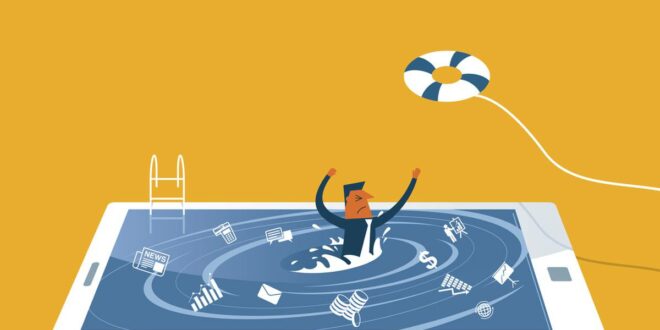In the late 1990s, I heard a speaker talk about an issue I didn’t think much of at the time — the opposing paths the Internet might take as it becomes more important in our lives.
At the time, perhaps 15 percent of Irish people had access to the Internet. Irish organizations were hardly ever online. Those of us who considered ourselves easygoing with this dawning virtual world derided the lack of perception and imagination in business and government, and their steadfast “manual” sites.
Most of us bought into the optimistic idealism of the early internet. We will have a marketplace for ideas! Services accessible to all! Always on the news! Deliver the right information to the right person at the right time! Mediation for the benefit of the public! Content will be king!
But this talk warned of another trend, an Internet that is no longer dominated by the small scale, run by the citizen, by passionate hobbyists, and does not provide a level playing field where small businesses can compete with the largest. Alternatively, the network may amplify the existing power differentials of corporations and governments.
It may become a nexus of data collection, an arena of information distortion and control, and a scaly landscape of scam sites and bad parties, from petty scammers to nation-state hackers.
Like many, I thought, absolutely not. I thought that while some of these dire possibilities might materialize, they wouldn’t dominate. Within its open, collaboratively evolving structures and its global base of thinkers, innovators, and passionate human users, the Internet has certainly had the power to manage inefficiencies and transform these threats.
[ Karlin Lillington: Beware your smart Christmas tech gifts in the season of surveillance ]
Curb enthusiasm
A quarter of a century later, my enthusiasm for the Internet has certainly been curbed. The internet is still a marvel and it has brought many positives, but unfortunately a lot of this negative arc has happened as well and we suffer the consequences.
Data breaches are common, we are bombarded with misinformation, fraud and other tragedies and exploitation, and our personal information is constantly and digitally invisibly collected by companies as we become data packed to be bought and sold.

Outlook to 2023
Still: As this year draws to a close, it feels like a flashback, the Internet’s transformation has begun. The past year has brought a number of important moves and reconsiderations that, perhaps, will restore that promising Internet.
On the corporate side, misconduct has had more powerful consequences, with heavy fines from national regulators including, finally, the Irish Data Protection Commission (increased pressure from other EU regulators appears to have strengthened Ireland’s backbone).
Sweeping EU legislation is on its way, with digital market and digital services laws, as well as related pieces to add even more force. Public attention is often focused on the US regulatory landscape, but the EU will still be the import regulator because multinationals cannot ignore their huge market.
However, in 2022, the Biden administration also begins to reset the US regulatory system after years of stagnation under Trump. Significant steps were taken to unfreeze the frozen negotiations towards a proper data transmission system, resulting in a new agreement in an area worth trillions in trans-Atlantic trade. The United States has also ramped up federal regulatory agencies related to technology and appears poised to advance much-needed federal data protection law.
[ Karlinn Lillington: Government inaction leaves our data retention laws in limbo ]
Damages and fines
Also significant this year is the filing of several massive restitutions against talk show host Alex Jones for his lies about Sandy Hook, and the fines and sentences handed out to participants in the January 6, 2020, U.S. Capitol insurrection.
No, these penalties will not end the spread of misinformation and hate online, or the abuse or violence associated with it, but they will make many to reconsider whether their twisted interpretation of “freedom of speech” means they can act online without consequence. These are very important decisions, both symbolic and tangible.
And Elon Musk has done us some favors. In the year of his disastrous Twitter presentation, he single-handedly sharpened public awareness of the value of social media platforms — and how easy it is to leave one vulnerable, flailing, and manipulable at the whims of one appalling individual.
In just a matter of months, Musk has outsmarted Zucked Zuck, debunked the fragile myth of “genius” in the tech business, and exposed the folly of a tech investor ecosystem that wasn’t smart enough to demand basic due diligence. It’s a lesson in business and technology for the ages, exposing hubris, miscalculation, mismanagement, ego, pettiness, overconfidence, and a business black hole – and the need to reconsider whether online public spaces of global reach should be on private property. .
The continued public migration to a decentralized, non-commercial Mastodon points to radically different possibilities for online communities.
Perhaps all this does not add up. In addition, regulation is difficult, and some misleading proposals can create new problems. But in retrospect, and again in retrospect, it looks like a change, a building swell, and a possible inflection point at which the Internet would branch out toward the promise it had in earlier days.
At the very least, 2022 has been a pivotal year for asking questions, demanding responses, and reclaiming personal initiative; A year of heightened awareness about the choices we make and determination to give us – or will create – more choices and more control over our technology-saturated lives.
Originally posted 2022-12-29 14:59:51.
